|
Vancouver, Canada
 Value Added Tax
Value Added Tax
➤ In Vancouver, most purchases and imports of goods are subject to a 7-percent Provincial Sales Tax (PST) and a 5-percent Goods and Services Tax.
➤ U.S. exhibitors may be responsible for duty or tax at the border for items not manufactured in the United States, but not for exhibit properties that are returning to the States. Many items necessary for exhibiting can be imported into Canada duty free according to the North American Free Trade Agreement.
➤ Canada participates in the ATA Carnet program.
 Voltage
Voltage
➤ Vancouver and the United States run on the same power voltage, so plug adapters and transformers are not necessary.
 Garbage
Garbage
➤ Exhibitors are responsible for removing all construction and dismantle waste at trade shows.
➤ Booth vacuuming and cleaning services can only be ordered through the convention center.
 Cellphones
Cellphones
➤ U.S. cellphone platforms will work in Vancouver, though roaming and data fees may be high. Some providers offer North American roaming plans with reduced costs.
 Shipping
Shipping
➤ All items sent to Canada from the United States must go through customs, where delays of several days can occur. Documents of origin and a cash bond may be needed to ensure the goods' entry.
➤ Exhibitors experienced with international shipping may be able to send items to Canada without the help of a freight forwarder or customs clearance agent, but doing so will likely require their presence at the border with the shipped items.
 Emergencies
Emergencies
➤ Dial 911 for all emergency services.
Greetings and Culture
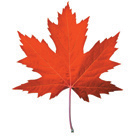
➤ Business introductions in Vancouver are identical to those in the United States. Shaking hands is a common practice. Do not address someone by his or her first name unless you are invited to do so. Though Vancouver is generally considered a more laid-back city than some in Canada, do not expect personal conversations to take place during business meetings or in formal settings.
➤ Lavish, high-value gifts are not common at trade shows in Vancouver. However, less expensive, branded promotional items are frequently distributed to booth visitors.
Hospitality
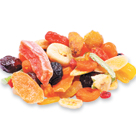
➤ Some large exhibits will offer an elaborate spread of food, beverages, and other courtesy items in dedicated hospitality areas. It is not unusual for smaller booths to have only minimal hospitality or none at all.
➤ Hot and cold beverages, cookies, finger foods, and candies are typically served when hospitality is provided.
➤ Exhibitors must usually purchase all food and beverage items from a venue's designated catering company.
➤ Alcoholic drinks are sometimes served at trade shows, but it is not common and must always be cleared through the show organizer and purchased through the venue's official catering company.
Language
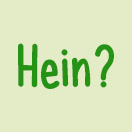
➤ English is the predominant language spoken in Vancouver, though Canada is a bilingual country with English and French as its official languages. However, French is not commonly spoken in Vancouver.
➤ nsider using a translator if target customers are from Quebec, where French is the official language.
Staff Attire

➤ Business-casual to business-formal dress is common in Vancouver, depending on how conservative the industry is and the nature of the event.
➤ Dark colors such as gray, navy, and black are common for business attire for both men and women at trade shows.
➤ Dress at after-hours gatherings is often considerably more casual.
Installation and Dismantle
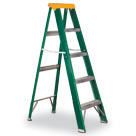
➤ Official venue suppliers must be used for some show-related work, including electrical, housekeeping, forklift operation, security, plumbing, rigging, and telecommunications.
➤ Vancouver is a right-to-work city, and there are no laws in place requiring you to use union labor for the installation and dismantle of your exhibit. However, some show organizers, in collaboration with their general contractors, may require exhibitors to use union labor for the installation of booths that will not be set up by the exhibiting company's full-time employees.
➤ Exhibitors should bring their own tools, ladders, brooms, dollies, and other exhibit-building equipment. Any power tools must have the appropriate dust extraction equipment in order to be used on site.
➤ Personal safety wear is required in Vancouver's main venues during I&D. Steel-toe shoes or boots, high-visibility vests, and hard hats will be required in some instances. Your exhibitor manual should list these requirements.
➤ Labor rates in Vancouver vary, with straight time typically running from 8 a.m. to 5 p.m., Monday through Friday. There is a four-hour minimum for labor orders.
➤ If your exhibit exceeds 8 feet in height, a structural engineer must certify the design.
General Facts and Tips
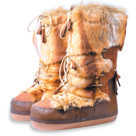
➤ Walking or using the public transportation system is easier and more efficient than driving in downtown Vancouver, where the convention centers are situated.
➤ Taxis are readily available at the airport. A ride to downtown will take approximately 30 minutes and cost roughly $35. Alternately, there is a train (commonly referred to as the Skytrain by locals) that runs from the airport to downtown for approximately $9.
➤ Canada uses the metric system. However, feet and inches are widely used in the country's exhibition industry, so it is not necessary to convert measurements.
Venues and Resources
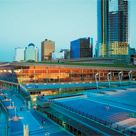
➤ The Vancouver Convention Centre, with 467,000 square feet of function space, is the city's primary exhibition venue ( www.vancouverconventioncentre.com). Located in downtown Vancouver, the waterfront venue has three connecting hotels and 13,000 hotel rooms in a variety of price ranges within walking distance.
➤ BC Place Stadium ( www.bcplace.com), also downtown, is an enclosed stadium that hosts events and trade shows as well.
➤ The International Association of Exhibitions and Events ( www.iaee.com), the International Federation of Exhibition and Event Services ( www.ifesnet.com), and the Global Association of the Exhibition Industry ( www.ufi.org) can connect exhibitors to resources needed for exhibiting in Vancouver.
SOURCES
Sources: Shawn Henderson, director of sales, Displayco Canada, Calgary, Alberta, Canada; Deb Reynolds, client manager, convention services, Tourism Vancouver, Vancouver; DaviD Hay, canadian sales manager, Levy show services inc., Richmond, British Columbia, Canada
|







 ➤ Business introductions in Vancouver are identical to those in the United States. Shaking hands is a common practice. Do not address someone by his or her first name unless you are invited to do so. Though Vancouver is generally considered a more laid-back city than some in Canada, do not expect personal conversations to take place during business meetings or in formal settings.
➤ Business introductions in Vancouver are identical to those in the United States. Shaking hands is a common practice. Do not address someone by his or her first name unless you are invited to do so. Though Vancouver is generally considered a more laid-back city than some in Canada, do not expect personal conversations to take place during business meetings or in formal settings. ➤ Some large exhibits will offer an elaborate spread of food, beverages, and other courtesy items in dedicated hospitality areas. It is not unusual for smaller booths to have only minimal hospitality or none at all.
➤ Some large exhibits will offer an elaborate spread of food, beverages, and other courtesy items in dedicated hospitality areas. It is not unusual for smaller booths to have only minimal hospitality or none at all. ➤ English is the predominant language spoken in Vancouver, though Canada is a bilingual country with English and French as its official languages. However, French is not commonly spoken in Vancouver.
➤ English is the predominant language spoken in Vancouver, though Canada is a bilingual country with English and French as its official languages. However, French is not commonly spoken in Vancouver. ➤ Business-casual to business-formal dress is common in Vancouver, depending on how conservative the industry is and the nature of the event.
➤ Business-casual to business-formal dress is common in Vancouver, depending on how conservative the industry is and the nature of the event. ➤ Official venue suppliers must be used for some show-related work, including electrical, housekeeping, forklift operation, security, plumbing, rigging, and telecommunications.
➤ Official venue suppliers must be used for some show-related work, including electrical, housekeeping, forklift operation, security, plumbing, rigging, and telecommunications.  ➤ Walking or using the public transportation system is easier and more efficient than driving in downtown Vancouver, where the convention centers are situated.
➤ Walking or using the public transportation system is easier and more efficient than driving in downtown Vancouver, where the convention centers are situated.  ➤ The Vancouver Convention Centre, with 467,000 square feet of function space, is the city's primary exhibition venue (
➤ The Vancouver Convention Centre, with 467,000 square feet of function space, is the city's primary exhibition venue (